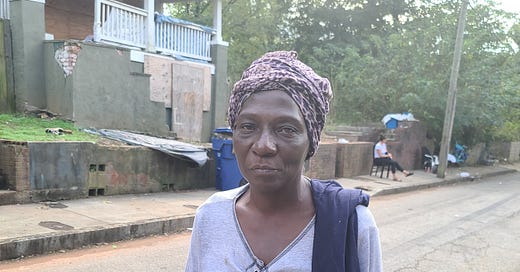The Morehouse Crackhouse
Several properties owned by the college have fallen into ruin. What happens when Morehouse becomes the oppressor of the Black community?

As I chatted with some folks sitting near a boarded up house in the West End last week, a guy popped out of a car that was just a hair too nice for the neighborhood. Two men sat in the back seat, watching. I introduced myself.
“First off, let me ask you…
Keep reading with a 7-day free trial
Subscribe to The Atlanta Objective with George Chidi to keep reading this post and get 7 days of free access to the full post archives.



